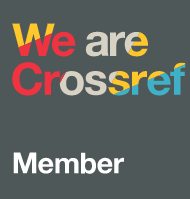TACKLING INDONESIA'S PLASTIC WASTE CRISIS: A POLITICAL PERSPECTIVES AND POLICY IMPLICATIONS
Abstract
Keywords
Full Text:
PDFReferences
Chen, H. L., Nath, T. K., Chong, S., Foo, V., Gibbins, C., & Lechner, A. M. (2021). The plastic waste problem in Malaysia: management, recycling and disposal of local and global plastic waste. SN Applied Sciences.
GreenPeace. (2019). Krisis Belum Terurai: Rekapitulasi Temuan Audit Merek Sampah Plastik Tahun 2016-2019 di Indonesia. GreenPeace. Retrieved from https://www.greenpeace.org/static/planet4-indonesia-stateless/2019/11/f8b99e3c-greenpeace-final-rekapitulasi-audit-merek-sampah-plastik-sekali-pakai-lowres.pdf
Gustiawati, B. L., Herdiansyah, H., & Frimawaty, E. (2023). A Review of the Implementation ofSustainable Plastic Waste Management. International Journal of Science and Society, 5(5), 690-705.
Ho, T., Causier, E., & Karlsson, P.-H. (2020). A Singapore Perspective on Plastics and the Opportunity for Brands to Drive Change. Paris: Ipsos Briefing.
Kehinde Oladipupo, A.-T. (2020, Desember). Kiel University Library. Retrieved from Sustainable Strategies and Policy for Plastic Waste Collection and Management in Germany and Canada: Lessons for Lagos State, Nigeria: https://macau.uni-kiel.de/receive/macau_mods_00001325
Kementerian Lingkungan Hidup dan Kehutanan. (2023). CAPAIAN KINERJA PENGELOLAAN SAMPAH. Retrieved Maret 01, 2024, from Sistem Informasi Pengelolaan Sampah Nasional (SIPSN) : https://sipsn.menlhk.go.id/sipsn/
Media Indonesia. (2024, Februari 23). Atasi Pencemaran Sampah Plastik, TKN PSL Luncurkan Kampanye Resik. (S. Pramono, Editor) Retrieved Maret 01, 2024, from Media Indonesia: https://mediaindonesia.com/humaniora/653877/atasi-pencemaran-sampah-plastik-tkn-psl-luncurkan-kampanye-resik
Melina, N. F. (2022, Mei 27). Krisis Sampah Plastik, Peran Aktif Korporasi Penting untuk Wujudkan Target Pemerintah. Retrieved Maret 01, 2024, from TRIBUN NEWS: https://www.tribunnews.com/nasional/2022/05/27/krisis-sampah-plastik-peran-aktif-korporasi-penting-untuk-wujudkan-target-pemerintah?page=all
Mundita, T. (2023, Juni 07). Beating Plastic Pollution to Protect ASEAN’s Web of Life. Retrieved Maret 04, 2024, from ASEAN Centre for Biodiversity.
Panjaitan, J. (2019). The Excise Tax on Plastic to Overcome Indonesia's Problems of Plastic Waste. JURNAL BUDGET, 4(1), 101-120.
Plastic Smart Cities. (2023, Agustus 06). Public Awareness. Retrieved Maret 05, 2024, from Plastic Smart Cities: https://plasticsmartcities.org/public-awareness/
Rahayu, M. I., Susanto, A., & Muliya, L. S. (2017). Gerakan Sosial Pemberdayaan Hukum Dalam Pelestarian Fungsi Lingkungan Hidup Melalui Metode Patanjala. Bina Hukum Lingkungan, 2(1), 47.
Satispi, E., & Samudra, A. A. (2022). Study of Policy Implementation: Strategy of COVID-19 Plastic Waste Management in Indonesia. Journal of Public Policy and Administration, 6(4), 155-164.
Sheany. (2018, Oktober 19). Public Awareness, Participation Key to Curbing Plastic Waste in Indonesia, Officials Say. Retrieved Maret 05, 2024, from Jakarta Globe: https://jakartaglobe.id/news/public-awareness-participation-key-to-curbing-plastic-waste-in-indonesia-officials-say
Suasono, E., Linardi, A., Yudinata, V., Hasibuan, F. J., Yunizar, D., & Yohana, S. (2023). The Effectiveness of Plastic Waste Management Based on The Legal System in Indonesia. Dialogia Iuridica, 15(1), 38-58.
Subekti, R. (2023). A Circular Economy-Based Plastic Waste Management Policy in Indonesia (Compared to China and EU). Yustisia Jurnal Hukum, 12(2), 168-184.
Wang, Y., & Karasik, R. (2022). Plastic Pollution Policy Country Profile: Indonesia. Durham, NC: Duke University.
World Economic Forum. (2020). Radically Reducing Plastic Pollution in Indonesia: A Multistakeholder Action Plan National Plastic Action Partnership. Cologny/Geneva: World Economic Forum.
World Population Review. (2024). Plastic Pollution by Country 2024. Retrieved Maret 04, 2024, from World Population Review: https://worldpopulationreview.com/country-rankings/plastic-pollution-by-country
DOI: https://doi.org/10.33373/jtp.v8i1.6193
Refbacks
- There are currently no refbacks.
Office:
Department of Government Studies, Faculty of Social and Political Sciences, Universitas Riau Kepulauan
unit E
Jl. Pahlawan No. 99, Bukit Tempayan, Batu Aji, Kota Batam
Contact: (0778) 39275
e-mail: jurnaltriaspolitika2017@gmail.com
________________________________________________________________________________________________________________________________
In Cooperation with: Powered By:
Jurnal Trias Politika (JTP) is licensed under a Lisensi Creative Commons Atribusi 4.0 Internasional.






.png)



